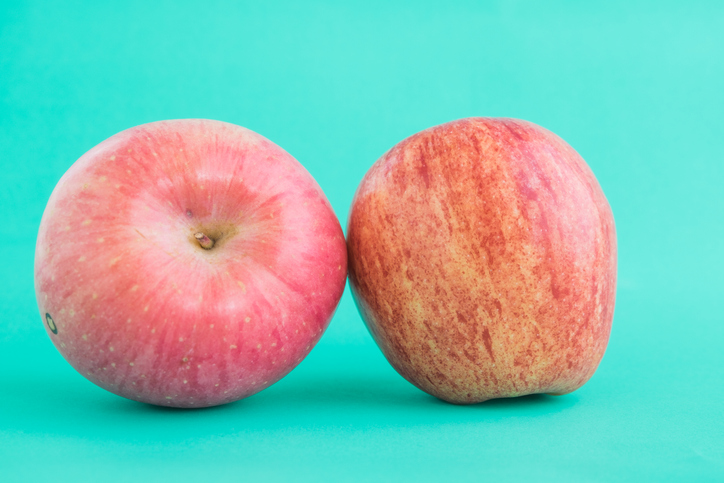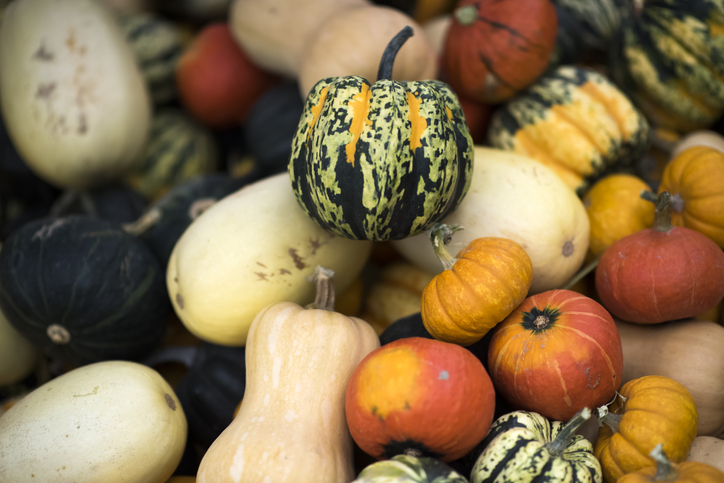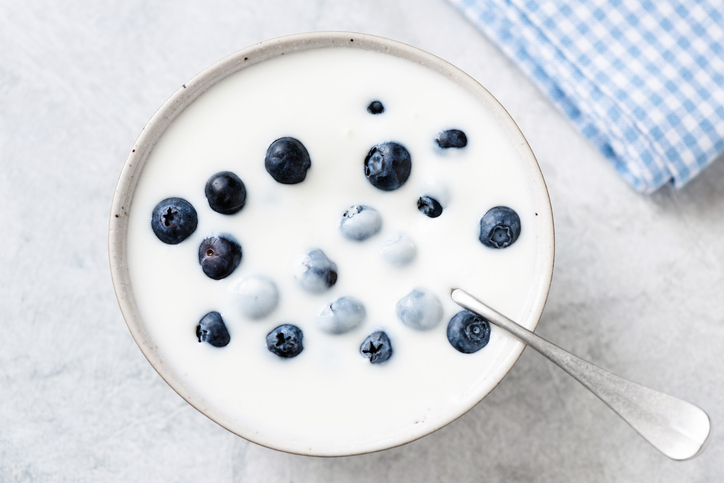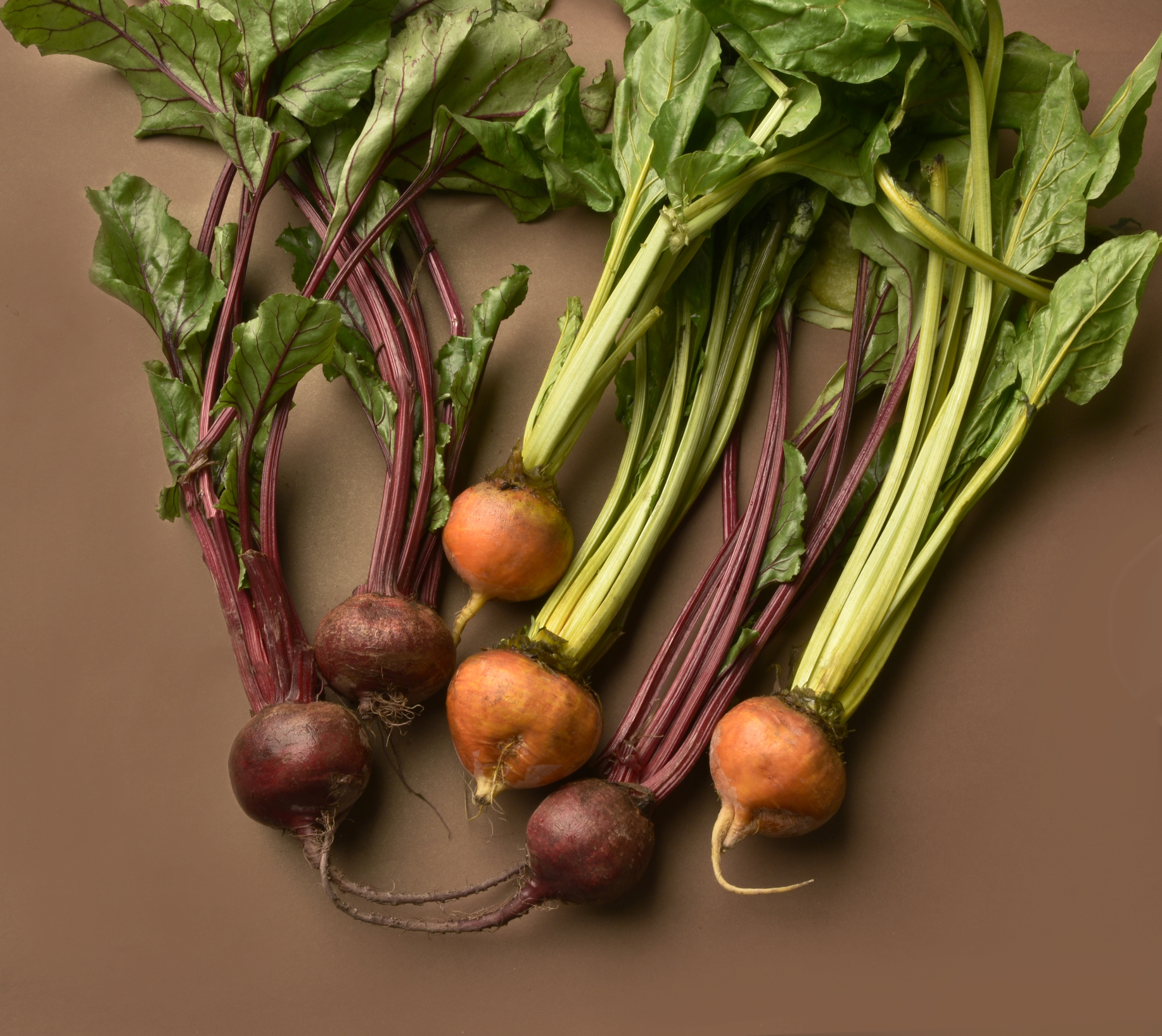Fresh Foods That Last A Long Time
Share the post
Share this link via
Or copy link

Source: Jasmin Merdan / Getty
Something has been bothering me about the current shelter-in-place situation (well, a lot of things, of course) and that’s how we’re grocery shopping. The canned stuff is flying off the shelves. Really, all the non-perishables are what people tend to be buying in bulk right now. And fresh fruit and vegetable sales are declining. I understand that picking up sustenance protected by what seem like indestructible tin cans provides a sense of security right now. Each time I hold one I imagine some end-of-times scenario in which it’s just me, my bunker, and rows and rows of gleaming steel, holding stewed peaches and baked beans.
But, it’s not the end-of-times. We, as a country, have been through struggles like this before and bounced back—a reality that may calm your nerves right now. And, as it stands, we can still buy perishable items. In fact, according to this New York Times post, there is a surplus of avocados! Yup—that little lumpy fruit that restaurants (when they were open #supportrestaurantworkers) charged a bit too much to add to your sandwich or nachos is now piling up in stores. I’m buying tons every time I go because the deals are just too good to pass up. We don’t need to just buy canned foods or frozen stuff.
As a matter of fact, we shouldn’t just be buying the non-perishables, as they’re filled with so many preservatives and sodium that they can mean bad news for our health if eaten in large quantities. But I understand that what we want, right now, is food that lasts so that we don’t have to venture back to the store any sooner than necessary, braving the long lines and potential COVID-19 exposure. Fortunately, these fresh items last a long time on your counter or in your fridge. So stock up on these.

Source: Mint Images / Getty
Turnips
Love MadameNoire? Get more! Join the MadameNoire Newsletter
We care about your data. See our privacy policy.
These beautiful purple and white ground-dwelling vegetables are loaded with fiber, tons of vitamins—including vitamin B, which we need to feel happy during these dark times—and heart-healthy omega-3s. What’s more is that they last two to three weeks with the stem on, uncut in the refrigerator.

Source: Thirawatana Phaisalratana / EyeEm / Getty
Cabbage
Get ready for this: cabbage can last two to three months when stored in the refrigerator, uncut. No wonder it’s been a popular food during famines. And it’s loaded with nutrients like vitamin C and vitamin K, it can improve digestion, and it can help lower cholesterol. Plus, you can use it to make a hearty and affordable vegetable soup.

Source: Chatuwat Onkhamla / EyeEm / Getty
Apples
Apples will last a week or two on your counter and six to eight weeks in the refrigerator. The nice thing about apples is that there are so many varieties, so you don’t need to grow tired of them quickly. Use some of those non-perishable raisins you’ve stocked up on, with some cinnamon, to make baked apples for a healthy dessert.

Source: W Rpht Wphakdi Phechr / EyeEm / Getty
Oranges
Oranges can last three to four weeks in the refrigerator. That’s certainly more than quarantine time. They’re loaded with vitamin C, which we all need to boost our immunity right now. They’re also super hydrating, so if you struggle to get enough liquids from drinking fluids, snack on this juicy fruit.

Source: Daniela Duncan / Getty
Baby carrots
While loose carrots with the stem on can become limp pretty quickly, baby carrots, due to their packaging, can last in the fridge for two to three weeks. They’re an excellent source of beta carotene, fiber, and antioxidants. And they’re just as good raw with hummus or ranch dressing as they are roasted or thrown into a stew.

Source: Molly Aaker / Getty
Potatoes
Potatoes will last one to two weeks stored at room temperature, so if you’re low on fridge space, that’s one option. But if you can toss these bad boys in the fridge, you’ll see a two- to three-month shelf life. That’s a lot of mashed potatoes, breakfast potatoes, homemade thick-cut fries, homemade hash browns…you get the idea. These boast potassium, fiber, vitamin C, and vitamin B6.

Source: Stephanie Nantel / Getty
Squash
Squash have the benefit of that super-thick rind—it’s almost like their protective helmet, guarding the good stuff inside. Unpeeled, a whole butternut squash will last an entire month if stored in a cool, dark place. Acorn squash, with its extra-thick outer shell, can last up to two months when stored in a cool dark place. Most types of squash are rich in tons of vitamins and minerals, as well as fiber.

Source: Arx0nt / Getty
Yogurt
The dairy isle isn’t off-limits to you during the coronavirus quarantine. You just have to dig around. I often find Greek yogurt with an expiration date that’s three weeks out. Yogurt is a great source of probiotics, and we could probably all use a boost to our digestion during stressful times. It’s also a great source of protein—particularly when you’ve tired of meat—and is naturally high in calcium.

Source: Akepong Srichaichana / EyeEm / Getty
Shelled peanuts
Buy shell-on peanuts. Taking on the little task of removing the shells later means you give your nuts a longer shelf life. Stored in a cool, dry place, shelled peanuts can last for several months, and are good sources of healthy fats as well as protein. They aren’t just for snacking, either. Remember you can add them chopped to stir fry or crumble them over an ice cream sundae.

Source: Rani Sr Prasiththi / EyeEm / Getty
Eggs
Eggs, like yogurt, are food you’ll want to investigate at the store. You don’t know how often the staff shuffles these, but if you find some of the newer arrivals, they could have a shelf life of several weeks in the refrigerator. They provide quick and easy protein, plus vitamin B6 and B12. Oh, and they have vitamin D, which, we may not be getting much of through outdoor excursions right now. Most of us don’t get enough under normal circumstances.

Source: Susanne Alfredsson / EyeEm / Getty
Radishes
Combine these with your baby carrots and turnips in a foil-lined pan with salt, pepper, and olive oil, toss them in the oven at 375 degrees for 35 minutes and you have a delicious and nutritious roasted winter veggie platter. All from quarantine-approved foods. Radishes can last two weeks in the refrigerator, when left whole.

Source: Tom Kelley / Getty
Beets
Beets are quite the super food, with tons of folate, fiber, and vitamin C, while remaining quite low in calories. They’re also just so pretty, and I, personally, need to look at beautiful food right now to lift my spirits. Left whole in the fridge, beets can last for 14 days. When you’re ready to eat them, consider boiling them, letting them cool, and adding them to salads.

Source: GMVozd / Getty
Dark chocolate
Don’t you worry my sweet-toothed friends. Quarantine doesn’t have to be without dessert. And it doesn’t have to mean chemical-heavy packaged candies if you’re going to get your sugar fix. When stored between 60 and 65 degrees—so perhaps in your pantry—dark chocolate can last for nearly a year. Yes, you read that correctly.

Source: Sophn Ci Trng / EyeEm / Getty
Cucumbers
Cucumbers can last a week in the refrigerator. Tomatoes can last about the same. So if you’re seeing your lettuce wilt away too quickly, at the very least you can make a salad with cucumbers, tomatoes, olive oil, and vinegar for your fresh salad fix. Oh, and whole onions last four to six weeks on the counter, so you can add sweet red onion for a pseudo Greek salad.

Source: fcafotodigital / Getty
Celery
We usually think of celery as one of those foods that go bad quickly, but we’re just storing it incorrectly. Wrapped in aluminum foil in the fridge, celery lasts a month. Aluminum is an incredible insulator, and will keep your celery extra cold aka extra crisp.







